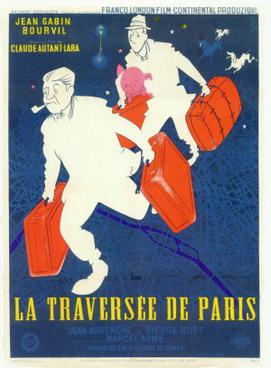 |
| Gian Maria Volontè, Alain Delon, and Yves Montand in Le Cercle Rouge |
Inspector Mattei: Bourvil
Vogel: Gian Maria Volontè
Jansen: Yves Montand
Fence: Paul Crauchet
Chief of Internal Affairs: Paul Amiot
The Prison Guard: Pierre Collet
Rico: André Ekyan
Santi: François Périer
Director: Jean-Pierre Melville
Screenplay: Jean-Pierre Melville
Cinematography: Henri Decaë
Production design: Théobald Meurisse
Film editing: Marie-Sophie Dubus
Music: Éric Demarsan
Caper films are such a standard movie genre that it takes a skilled director to make it new. Jean-Pierre Melville's Le Cercle Rouge stands out from the herd of jewel heists and missions impossible because of its effortless-seeming cool. Of course, if you want effortless cool you cast Alain Delon and Yves Montand, whose pictures should accompany any dictionary definition of the word. Nobody ever wore a trenchcoat with such handsome finesse as Delon and nobody ever smoked a cigarette with such world-weary fatalism as Montand. The centerpiece of Melville's film is the extended sequence in which the trio of thieves light-finger the loot, a scene distinguished by its near-silence, so that you hear every bump and rustle (along with the gasps and chuckles of your fellow viewers) as it takes place. But Melville has given us more: A fable based on a quotation from the Buddha that Melville himself made up, to the effect that men who are fated to meet "will inevitably come together in the red circle." So Corey, released from prison, finds himself linked to Vogel, who has made a daring escape from Mattei, the cop who arrested him and is transporting him to prison, and eventually to Jansen, an alcoholic sharpshooter, in pulling off a spectacular jewelry theft. Their coming-together forms the plot, but what distinguishes the film is the quiet mastery with which Melville draws each of his characters, giving us details about them, like Corey's failed relationship with his former mistress or Mattei's devotion to his three cats, that bear no significance in terms of the plot. Mattei's slipup in letting Vogel escape puts him on the hot spot with internal affairs, a sinister figure (of course) who believes in the essential depravity of humankind: "All men are guilty," he growls. "They're born innocent, but it doesn't last." That's about as noir a sentiment as you can get, even in a film made in color.
